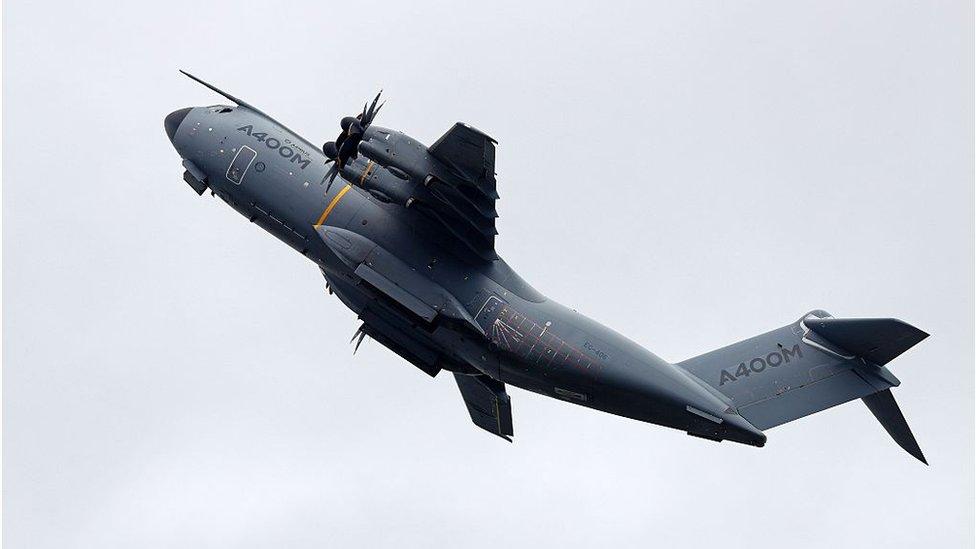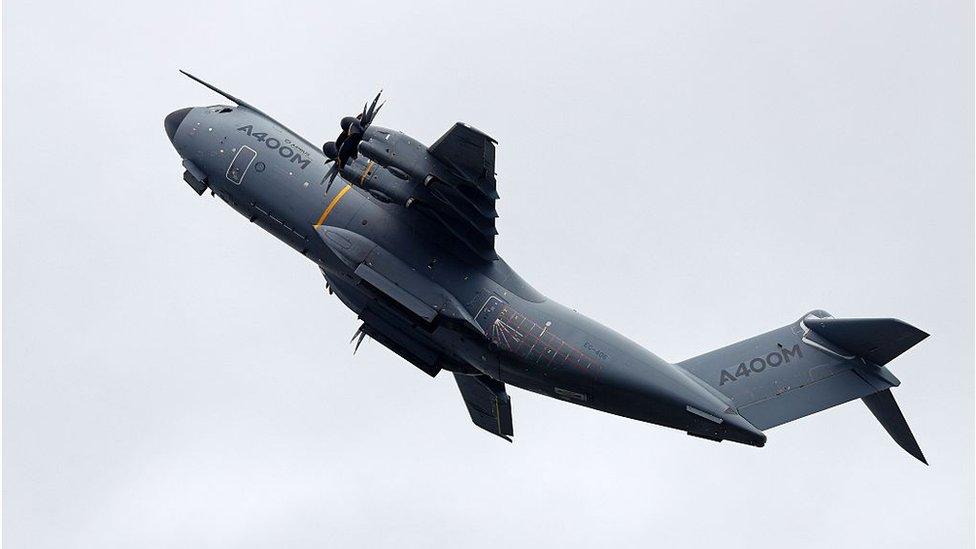Airbus profits fall as technical problems continue to hit projects
- Published

Problems at Airbus' troubled A400M military aircraft programme are far from over, the company has warned.
There are still issues over "meeting contractual capabilities" securing export orders, cost cutting, and commercial exposure, Airbus says.
The firm added that technical problems with engines for its new A320neo aircraft were still to be resolved.
The warnings came as Airbus posted quarterly figures showing a 52% fall in net profits to 240m euros (£203m).
The A400M has suffered a number of setbacks over the years, most seriously a crash during a test flight in Spain in 2015 which led to the deaths of the four crew members.
Total revenues for the three-month period rose 7% to 13bn euros, with Airbus predicting that it was on track to deliver more than 700 commercial aircraft during 2017, up from 688 in 2016.
"New order activity was low in Q1 as predicted but let's not forget that our strong order book of over 6,700 commercial aircraft supports our ongoing production ramp-up. Programme execution remains key for all our businesses," said Tom Enders, Airbus chief executive.
However, Airbus has been weighed down by weaker prices as it changes to new models and higher production costs.
And the company, which makes its aircraft wings in the UK, expects deliveries of the A320neo once again to fall predominantly in the latter part of the year. However, it said it hoped to avoid the last-minute rush seen in December last year.
Technical issues with the Pratt & Whitney engine "need to be resolved," Airbus said in its statement, external. Harald Wilhelm, finance director, told reporters later that the demonstrated performance on the US company's new Geared Turbofan engines was "not satisfactory" and that although a technical solution was in hand, "we still need to see proof coming through".
The Airbus Helicopters unit slipped into loss as the world's largest commercial helicopter maker continues to suffer from the grounding of aircraft in UK and Norway, following a crash that killed North Sea oil workers.
- Published26 April 2017

- Published22 February 2017
